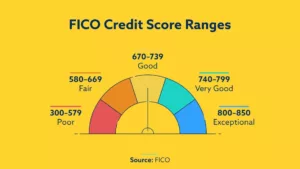Question: I’m making payments on a repo car that’s on my credit reports. It’s affecting my credit score big time. It also says derogatory on my credit reports from the same company. They’re not reporting my payments. Please tell me what I can do to let the credit agency know the lender is currently receiving payments.
Response: It sounds like your car loan was reinstated. It’s actually a better option when people have a car repo because it can be less costly than having to pay the entire balance on your car to redeem it.
The problem is when you reinstate a car loan it does not remove the repossession listing on your credit reports. Your credit report can legally contain the prior payment history, good or bad, along with a car repo notation as long as it is accurate. If you dispute the repo, it’s likely that it will be verified as accurate by the loan company because it did actually happen.
If the car repo was done before a charge-off occurred and you got the car reinstated, the derogatory information can remain up to 7 years from the date the car was repossessed.
However, if the car repo resulted in a charge-off, the derogatory can remain on your credit reports 7 years from the date the payment was missed which led to the car repossession.
A credit dispute with the credit bureaus is not going to help because they only report what the loan company tells them to report. You have to tackle this directly with the loan company and request they modify their reporting. You want to request a “goodwill adjustment” asking them to remove the derogatory marks and report your on-time payments monthly to the credit bureaus.
This type of request needs to be sent to someone in charge. Simply calling someone in customer service probably won’t get you the desired result. Send a certified letter to management, a VP or CEO to request they report your payments to the credit bureaus and remove the derogatory repo information as it is hurting your credit scores.
Keep in mind not reporting payments is not against the law. There are no laws that say creditors must report payments to the credit bureaus. The law only says if they report, it must be accurate.
Repossessions can tank a credit score but the late payments are pretty awful too
Damage to your credit score is not only because of the car repo. It’s likely from several actions leading up to the car repo, like the late payments. Once you miss one payment it can be reported to the credit bureaus as a 30-day late. But if you miss two car payments, your credit reports will show both a 30-day late and a 60-day late. Multiple notations of late payments can remain on your credit reports for 7 years from the date of the missed payment.
Lenders can repo cars that are one day late
Most car loan agreements contain a clause that allow lenders to repo a car even if it’s just one day late. While most lenders don’t exercise that right, it’s important to know lenders are not obligated legally to give you time. In addition to being able to repo a car that is a minimum 1 day late, lenders that hold multiple loan products on one customer have a cross-collateralization clause. A cross-collateralization clause says the lender can repossess a car if you are late on a different loan product.
Even if you make partial payment on your car loan, it is not full payment. The unpaid portion is considered late and the lender still has a right to repossess the vehicle for non-payment.
For most lenders default becomes serious at 90 to 120 days of late or insufficient payments. A defaulted car loan will show on your credit reports for 7 years from the point the account became delinquent and was never again brought current.
Options to Car Repossession
Once a lender repossesses your car, you can guarantee they will begin the process to recoup their losses. If the lender sells the car to recoup losses, it will be for much less than what you owe and you’ll end up with owing the lender a deficiency balance.
Before the lender comes after you for the deficiency balance, sends the account over to a collection agency; or worse, sue you in court, there are options.
1. Redeem the car
Many state laws give you the right to redeem your car before it is sold. That means you pay the entire balance on the car, plus fees, in order to get it back. Redemption is only available during a limited period of time. Your right of redemption ends when the car is sold. A lender is generally required to send you a written notice of the right to redeem the vehicle shortly after repossessing the car. The notice will include the payoff amount necessary to redeem the car.
2. Reinstate the car loan
Your state’s laws or your loan agreement may give you the option to reinstate a car loan. Reinstatement may save you some money because you only have to make up the missed payments and fees; you don’t have to pay the entire loan balance. The repo notation on credit reports will not be removed. Check your state laws for the time period a lender has to send you a reinstatement notice but typically they issue it in the first week after the repossession. If the lender tells you that you have no right to reinstate contact an attorney. You should not have to submit any references or proof of income in order to reinstate the loan.
3. Voluntary surrender
In instances where you know you can’t afford the car, consider voluntary surrender. This will prevent repossession and perhaps some fees like towing and storage. The damage to your credit score will be the same as involuntary repossession.
4. Refinance the Car Loan
A lesser known option to a car repo is refinancing. Refinance can be offered by the lender or you can seek car refinance on your own. There is a limited time to complete this option but it can be done. Before you seek refinancing consider the interest rate of a new loan; is it lower than the original loan? If not, refinancing may put you in worse position. Is it going to be worth refinancing only to end up with a loan extended for another 3 to 5 years, especially if you’ve already been paying on the car several years.
Lenders must send a post-repossession notice
Did you receive a post-repossession notice? After a car repo, the lender must notify you, in writing, a notice of default and your right to redeem or reinstate the loan. The post-repossession notice must state the following:
- the amount of the outstanding balance of the loan, including all fees and charges
- the deadline to redeem the loan
- the method by which you can redeem or payoff the loan to get the vehicle back, and
- if your state allows for the right of reinstatement, the amount necessary to bring the loan current and the steps you need to take to reinstate that loan.
Borrowers typically get this notice 5-days after the car has been repossessed.
Rebuild your credit after car repossession
Any credit you get after car repossession will come with higher rates and less favorable terms. Repossession typically involves several negative marks on your credit reports that can remain up to 7 years. It’s best to begin rebuilding your credit after a car repo immediately. Here is how:
Pay all credit obligations on time. Every mortgage or rent payment, every credit card, every loan payment and even utility and cell phone bill needs to be paid on time or before it is due for the next 2 years. Payment history is the biggest single factor determining your credit score. If you can’t pay in full at least make the minimum due on-time.
Make sure positive information is being reported. Do you have positive information to outweigh negative information reporting to the credit bureaus? If not, get some. Open 1 or 2 secured credit cards if you have too. Or, get an easy to qualify for retail card. Use a small portion of your available credit. Experts say to keep it below 30%. But really 10% is optimum for the best credit scores.
Monitor your credit reports regularly. Repossession involves several negative marks on your credit reports. Dispute inaccurate information and request it be deleted. If you have reinstated your loan and making timely payments, ask your lender for a goodwill adjust to remove the repo derogatory marks and to report monthly payments. Make sure your goodwill letter goes to a higher up in the company. Sending a goodwill request to customer service likely result in an automatic “no.”


















